The Power of Ideas
Scientists & Thinkers
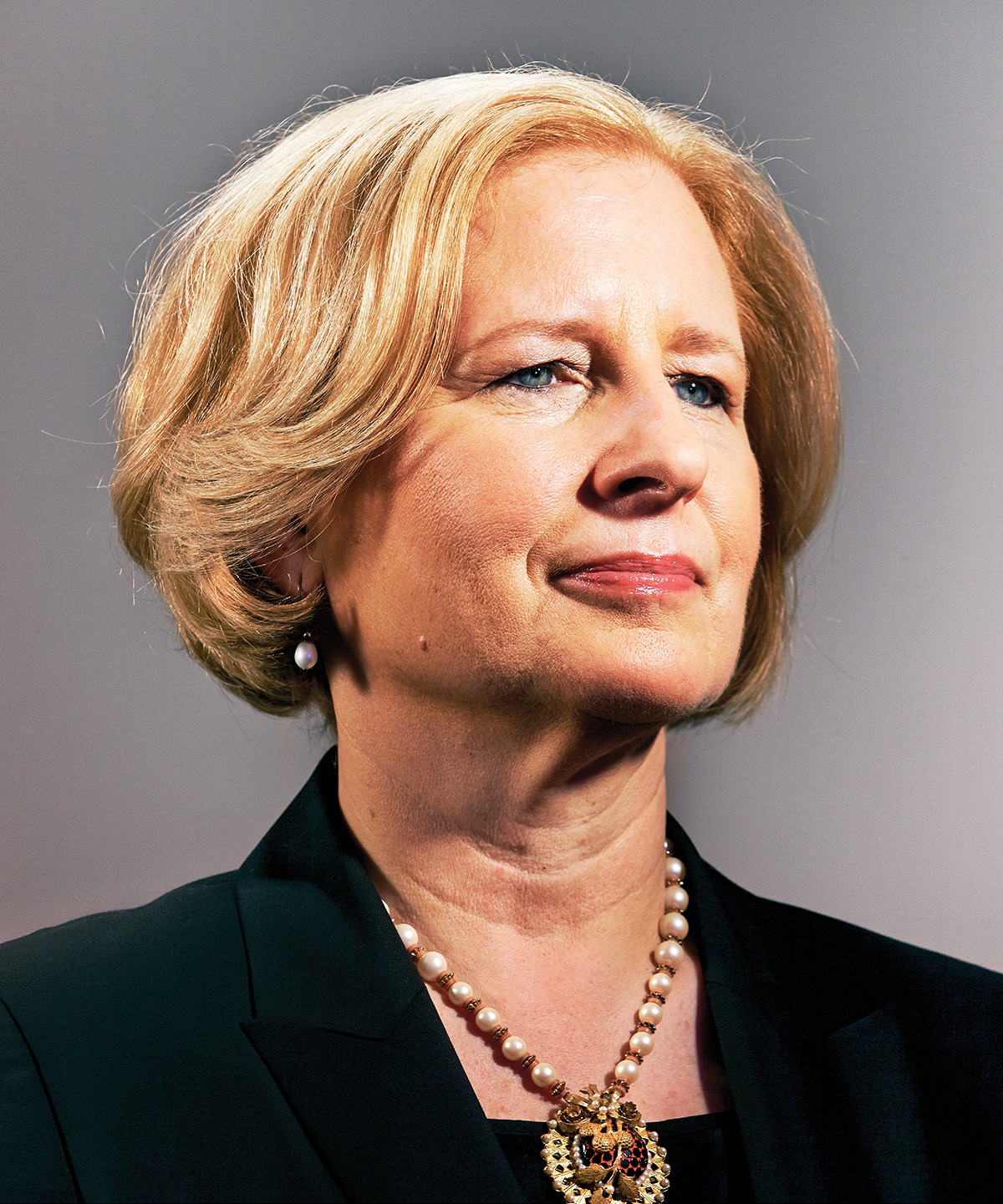
Photograph by Jeff Brown. Styling by Maryelle O’Rourke/Team.
MEDIA MATTERS
Ann Marie Lipinski
Curator, Nieman Foundation for Journalism at Harvard
As the first female curator of Harvard’s Nieman Foundation, the Pulitzer Prize–winning writer and editor is drawing the world’s top journalistic talent to Cambridge—recent fellows of the program include David Skok, who now oversees the Globe’s digital properties. Since Lipinski arrived three years ago, fellowship applications have more than doubled, and she’s introduced two new tracks that are bringing together academics, digital journalists, and website coders to ponder the media’s future.
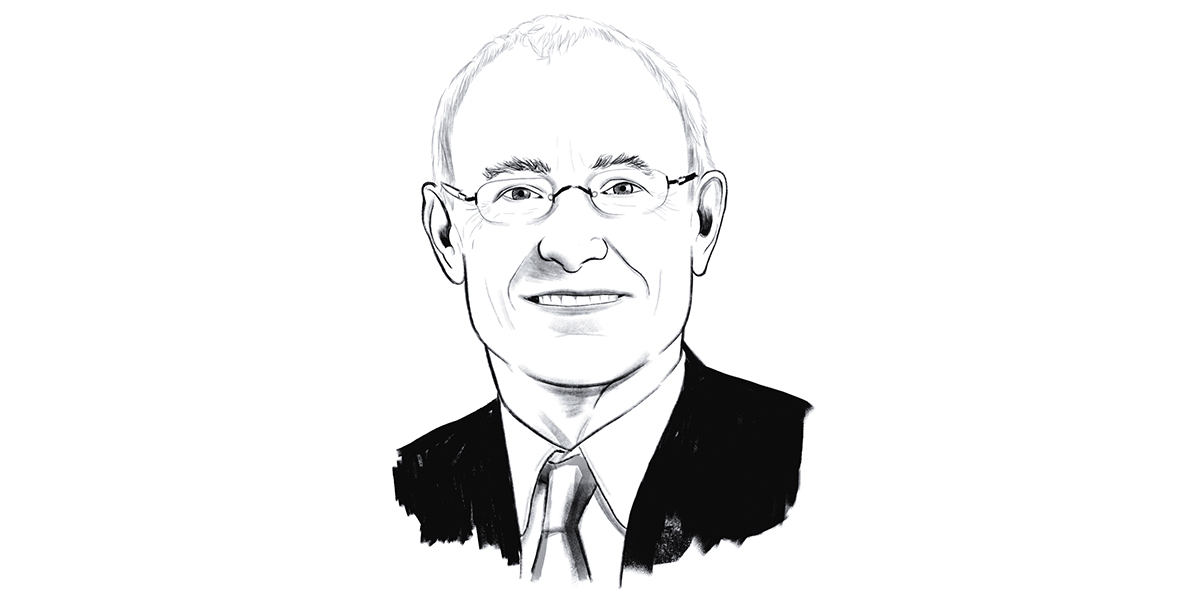
Illustration by Joel Kimmel
PLAY TO WIN
Michael Porter
Professor, Harvard Business School
Porter may be among the most preeminent business professors on the planet—he’s the mastermind behind the concept of competitive advantage—but the power of his ideas reaches way beyond Wall Street. Healthcare reformers are currently using his methods to reframe how they deliver care, and nations use his Social Progress Index to measure the well-being of their citizens. Considering that our own country ranked 16th on his index, Porter, through his U.S. Competitive Project at Harvard, is now bringing together thought leaders to strategize on how to keep America at the front of an increasingly global, industrialized, and, yes, competitive economy.
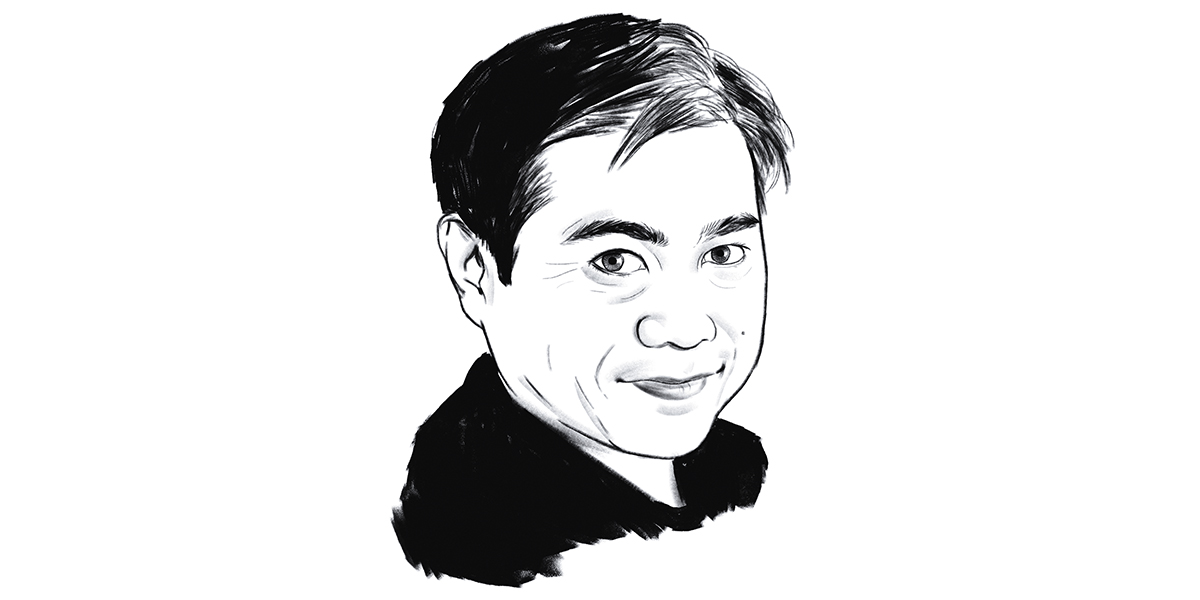
Illustration by Joel Kimmel
BE AN ANTI-DISCIPLINARIAN
Joi Ito
Director, MIT’s Media Lab
Ito runs MIT’s Media Lab, the city’s foremost R & D think tank and the nexus of business, science, and innovation in Boston. He’s also a rave DJ who swims with sharks. But Ito’s real talent is making connections. As head of the lab, his policy for faculty members is that they be “anti-disciplinary.” “To me,” he told Wired magazine, “there’s a science to community building.” In practice, the community Ito has built is turning out such sci-fi marvels as printable genes, snap-together electronic components, and wristbands that measure emotions. Their work pulls in the city’s best raw materials—capital, brainpower, technology—that drive so many of our best ideas into its orbit.
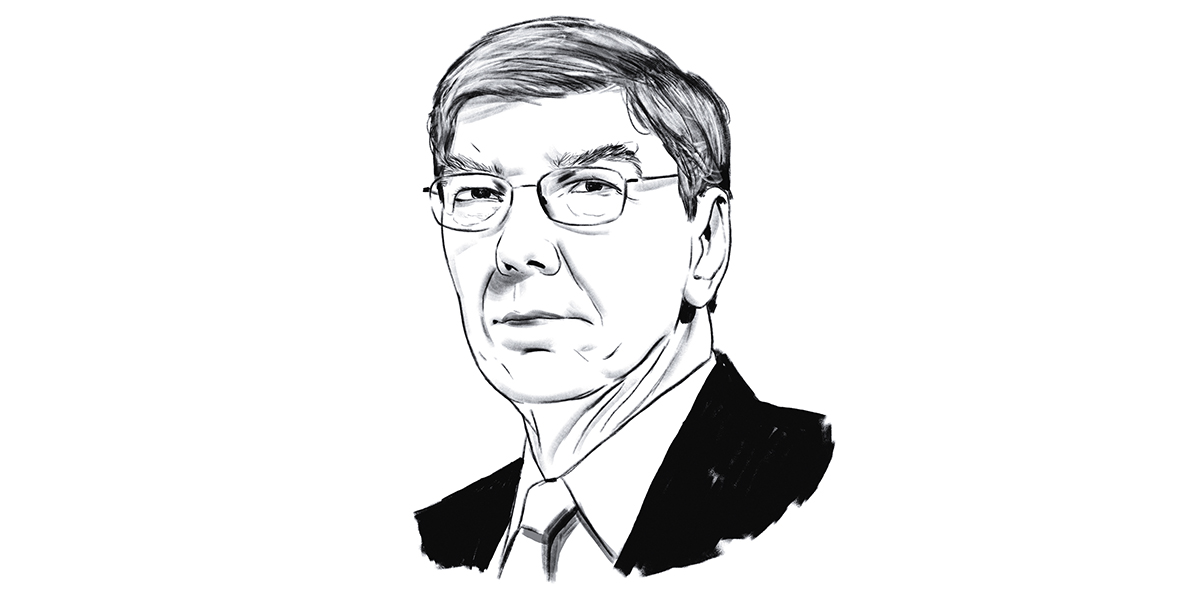
Illustration by Joel Kimmel
WE MUST DISRUPT
Clayton Christensen
Professor, Harvard Business School
In 1997 I attended my five-year reunion at HBS and will forever remember listening to Peter Drucker tell the assembled alums, “Don’t take four-year college for granted.” I didn’t really understand what he meant back then, nor did I hear many others talk in a similar manner for many years. That is, until Clay Christensen began writing about the same subject in such powerful ways.
Clay’s work on disruptive innovation has provided deeply important frameworks to help us better understand the future evolution of education. His ideas have powerful repercussions and predict one of the most significant changes that we will witness in our lives—the disruption and dismantling of higher education.
Clay tells us what we may not want to either hear or recognize: The way we educate our citizens is about to change in profound ways. As a social entrepreneur focused on education, his ideas are constantly informing and prodding us as we plan our future strategy. We would be unwise not to listen carefully to what he has to say. —Gerald Chertavian, Founder and CEO, Year Up
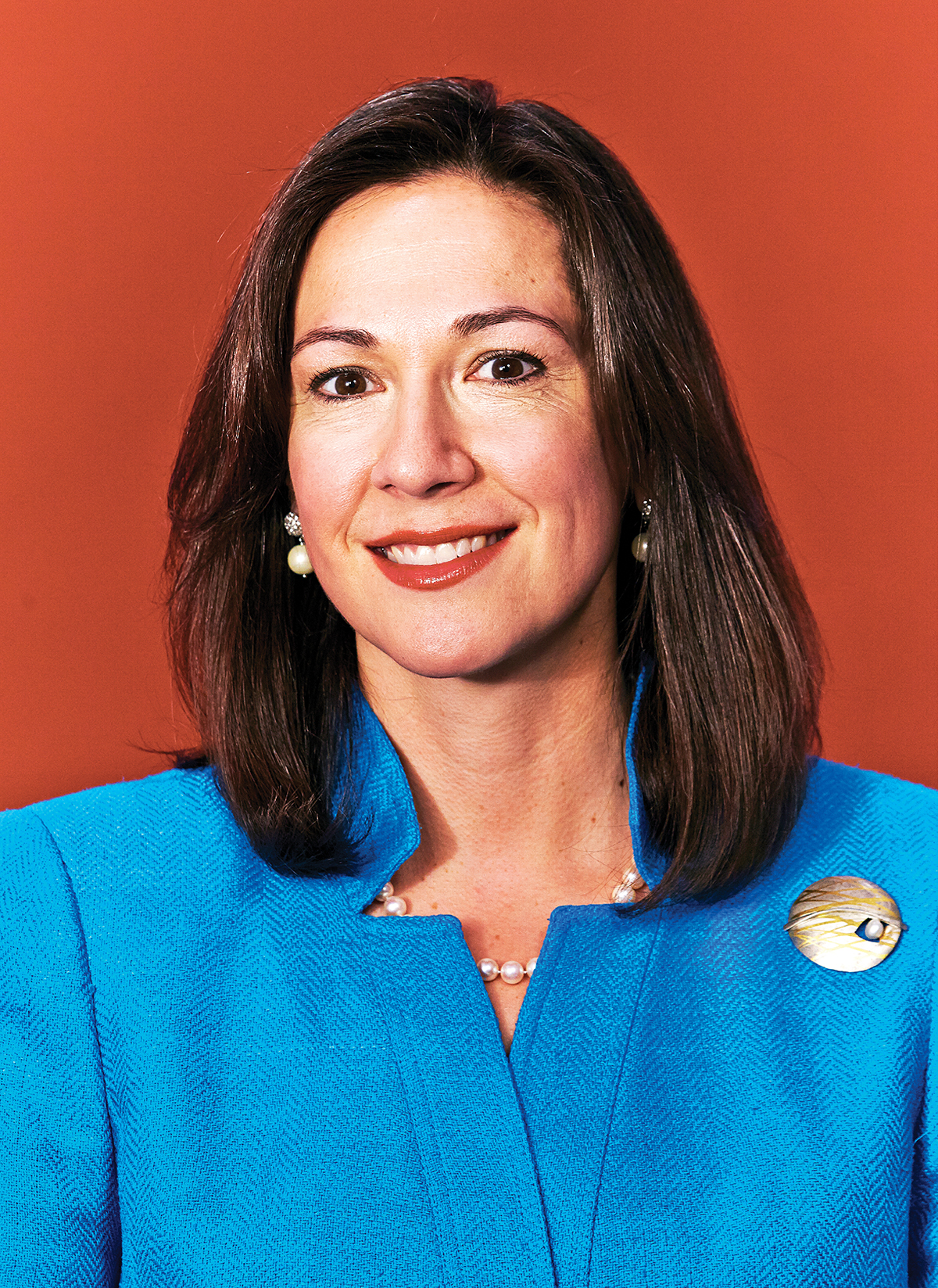
Photograph by Jeff Brown. Styling by Maryelle O’Rourke/Team.
ENDING GENDER INEQUALITY
Victoria Budson
Executive Director, Women and Public Policy Program at the Harvard Kennedy School of Government
Every year, a group of women emerge from Budson’s Harvard Square to the Oval Office project ready to take over the American political system. But that’s only a fraction of what Budson is doing at Harvard’s Kennedy School of Government: While talking heads debate work-life balance, pay equity, and leaning in, Budson’s research-driven training programs help women navigate the political and economic landscape toward their own definition of success—all while teaching them to improve the lives of others in the process. Budson’s expertise is routinely sought at the State Department, the White House, and by Governor Deval Patrick, and she was just named one of CNN’s 10 Visionary Women. When Budson demands that those in power pay attention to women, they listen.
GOOGLING THE GENOME
David Altshuler
Director, the Broad Institute’s Program in Medical and Population Genetics
Altshuler believes we’re living in another Age of Discovery—but instead of surveying new continents, scientists the world over are mapping the genes of individual human beings. All that data becomes meaningful, however, only when it’s shared and analyzed en masse. So Altshuler, a genomicist at the Broad Institute of Harvard and MIT, became one of the prime movers behind the Global Alliance for Genomics and Health. When the alliance met for the first time this March, it was made up of more than 200 experts seeking a practical way to share their data. A new partnership with Google will help them with that endeavor. If it succeeds, the alliance could open a door to individual genetic medicine—personalized cancer treatments, for example—and create a simpler way for scientists to solve humanity’s toughest health problems. As Altshuler says, it’s “a very important moment in history.”
GUN DISEASE
Vivek Murthy
Physician, Harvard Medical School Professor, and Surgeon General Nominee
As a doctor, Murthy has had a lot of good ideas. He started an AIDS education nonprofit while still in med school, and later launched a community-health program in rural India. More recently he cofounded Trial Networks—think Google Docs for pharmaceutical research—and Doctors for America, an advocacy group for affordable healthcare. But he may go down in history for the tweet that tied up his appointment to surgeon general: “Guns are a health care issue.” It’s hardly an extremist position, yet the ensuing political maelstrom only served to spotlight that idea, and to reframe one of the most polarizing debates in the country today as a public-health issue rather than merely a political one. Strong medicine, indeed.
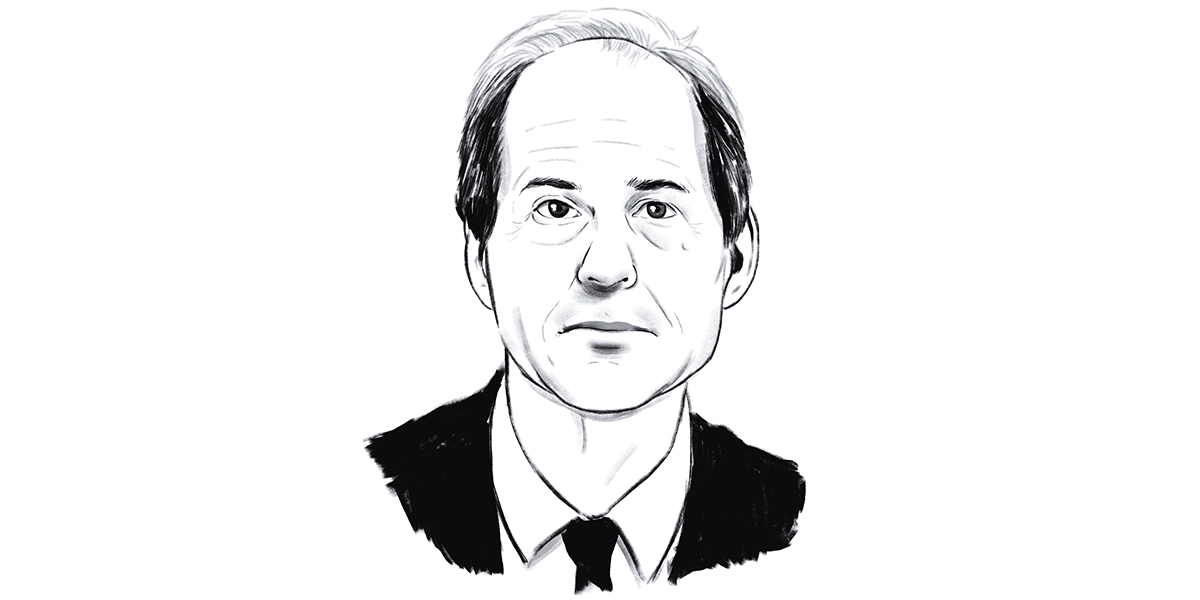
Illustration by Joel Kimmel
JUST A NUDGE
Cass Sunstein
Harvard Law School Professor, Author of Nudge: Improving Decisions about Health, Wealth, and Happiness
When governments impose paternalistic new policies, a squall of opposition typically follows (see: the Affordable Care Act). And while Sunstein’s stint as the White House chief of federal regulation wasn’t a complete home run, his behavioral-science-based approach to policymaking has been embraced across the pond. Since 2010, British Prime Minister David Cameron’s “nudge unit” has been using subtle tools to indoctrinate citizens on the wisdom of paying taxes on time, insulating their attics, and deciding to donate their organs. Small suggestions and smart thinking are cutting costs and having an impact elsewhere: One wonders when we’ll finally get the hint.
BASKETBALL IS A GAME OF NUMBERS
Mike Zarren
Celtics Stats Guru
Zarren is responsible for the year’s most game-changing proposal in sports: eliminate the NBA draft lottery in favor of a fixed wheel system that evenly distributes top picks to teams over a series of years—therefore removing the incentive for teams at the bottom, like the Celtics, to lose in order to improve their lottery odds. That’s just the latest of Zarren’s ideas. As one of the pioneers of the NBA analytics movement, the Celtics’ hyper-secretive stats guru has had a stealthy influence on the team for a decade. Lately, though, the 38-year-old Harvard Law grad has been much more open in discussing his fixed wheel proposal—it was the talk of the MIT Sloan Sports Analytics Conference this year. But don’t worry, Celtics fans: Zarren’s system, however popular, cannot be implemented before this year’s draft.
VIRAL PEACEMAKING
Farah Pandith
Harvard Institute of Politics Fellow
“The best way to disrupt the ideology of extremists,” Pandith has said, “is to provide a counter-narrative.” Pandith was born in Kashmir to Muslim parents and raised in Milton and Braintree. Her job—for four years as the State Department’s first-ever special representative to the Muslim community, appointed by Hillary Clinton, and now at Harvard—is to fight for the hearts and minds of the 62 percent of the world’s Muslims who are under the age of 30, and struggling to define their identities in a post-9/11 world.
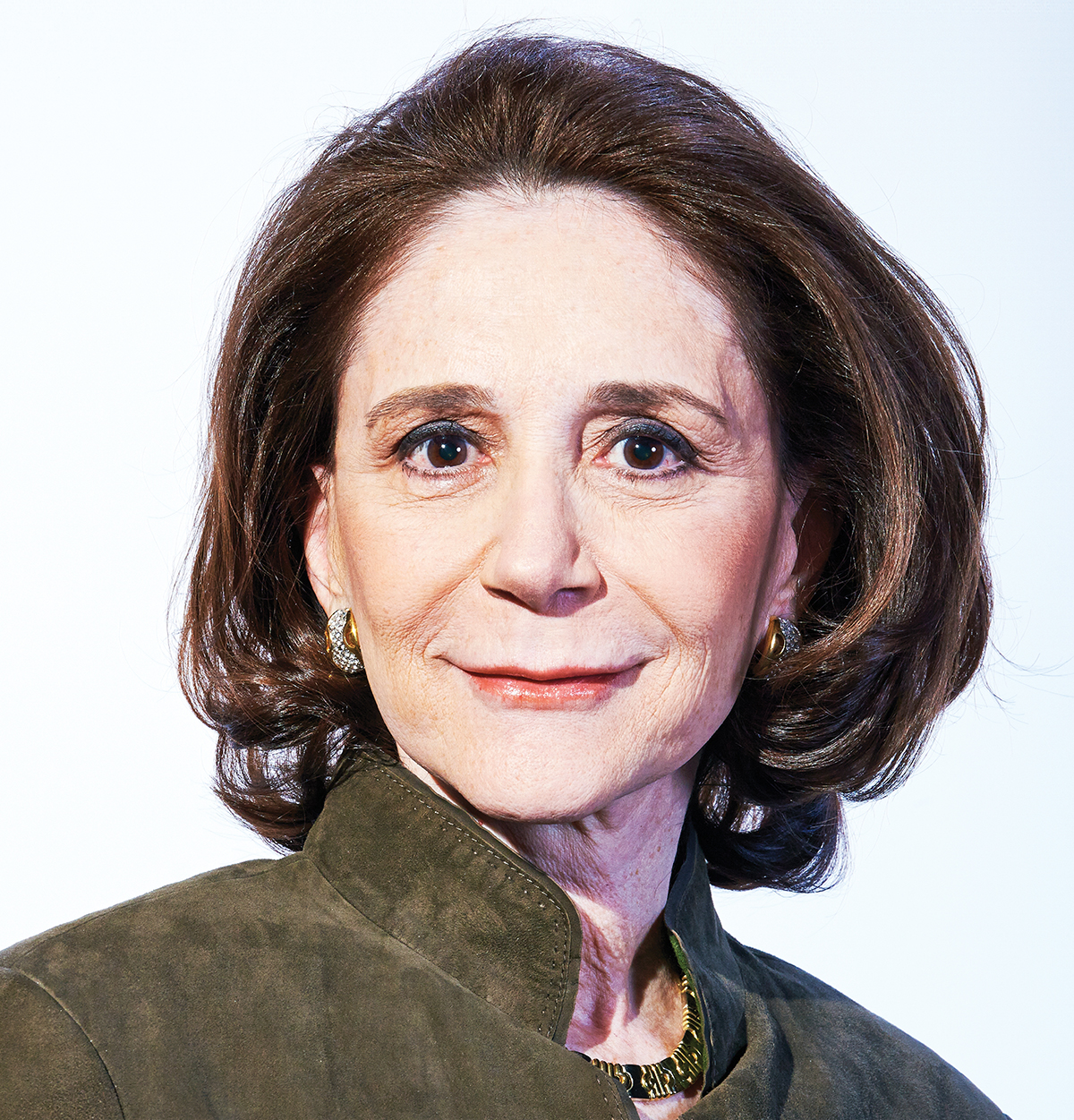
Photograph by Jeff Brown. Styling by Maryelle O’Rourke/Team.
WE NEED TO TALK ABOUT YOUR SMARTPHONE
Sherry Turkle
MIT Professor
When was the last time you paused to consider your relationship with your smartphone? MIT professor Sherry Turkle, the founder of the school’s Initiative on Technology and Self, is an expert on the interactions between humans and machines. (She loved the film Her: “It really captured our vulnerability to a device that seems to understand us,” she says.) As the author of Alone Together: Why We Expect More from Technology and Less from Each Other, Turkle has explored what our devices are doing to human interaction and conversation (hint: it’s not pretty). “We’re so intent on documenting our life, that we sometimes don’t take time to live our life,” she says. So think about this the next time you post a selfie.
DEPT. OF ACQUISITIONS
In the past few months, Google, Twitter, and Spotify snapped up local outfits Boston Dynamics, Bluefin Labs, and Echo Nest, respectively. Here are the brains behind the buyouts.
Marc Raibert, Boston Dynamics
Acquired by Google for an undisclosed sum
The Selling Point: The Waltham-based robotics firm is the juggernaut behind terrifying beast machines that, in YouTube videos, can be seen running at 30 miles per hour over mixed terrain like headless mechanical wolves.
What’s Next: A robot apocalypse would be the obvious scenario, though nobody really knows. Raibert has always demurred on whether he’s creating a league of mechanical overlords. Good thing Google’s motto is “Don’t Be Evil.”
Read more about Google’s acquisition of Boston Dynamics.
Deb Roy, Bluefin Labs
Acquired by Twitter for $90 million
The Selling Point: Roy drew on his research in child-language acquisition at MIT’s Media Lab to teach computers how to “read” social-media chatter about television, making it possible to measure a mass audience reaction in real time.
What’s Next: Twitter presumably will use the Bluefin technology in a multi-year partnership with Nielsen to create next-generation TV ratings.
Brian Whitman and Tristan Jehan, Echo Nest
Acquired by Spotify for a reported $100 million
The Selling Point: The Somerville music-analysis outfit was quietly powering Spotify, Rdio, Rhapsody, and other Internet music companies using its massive processing power to analyze 35 million songs—and what people are saying about those songs.
What’s Next: With all that data, Echo Nest’s algorithms can now help Spotify spit out your perfect mix tape.
Read more about Spotify’s acquisition of Echo Nest.

